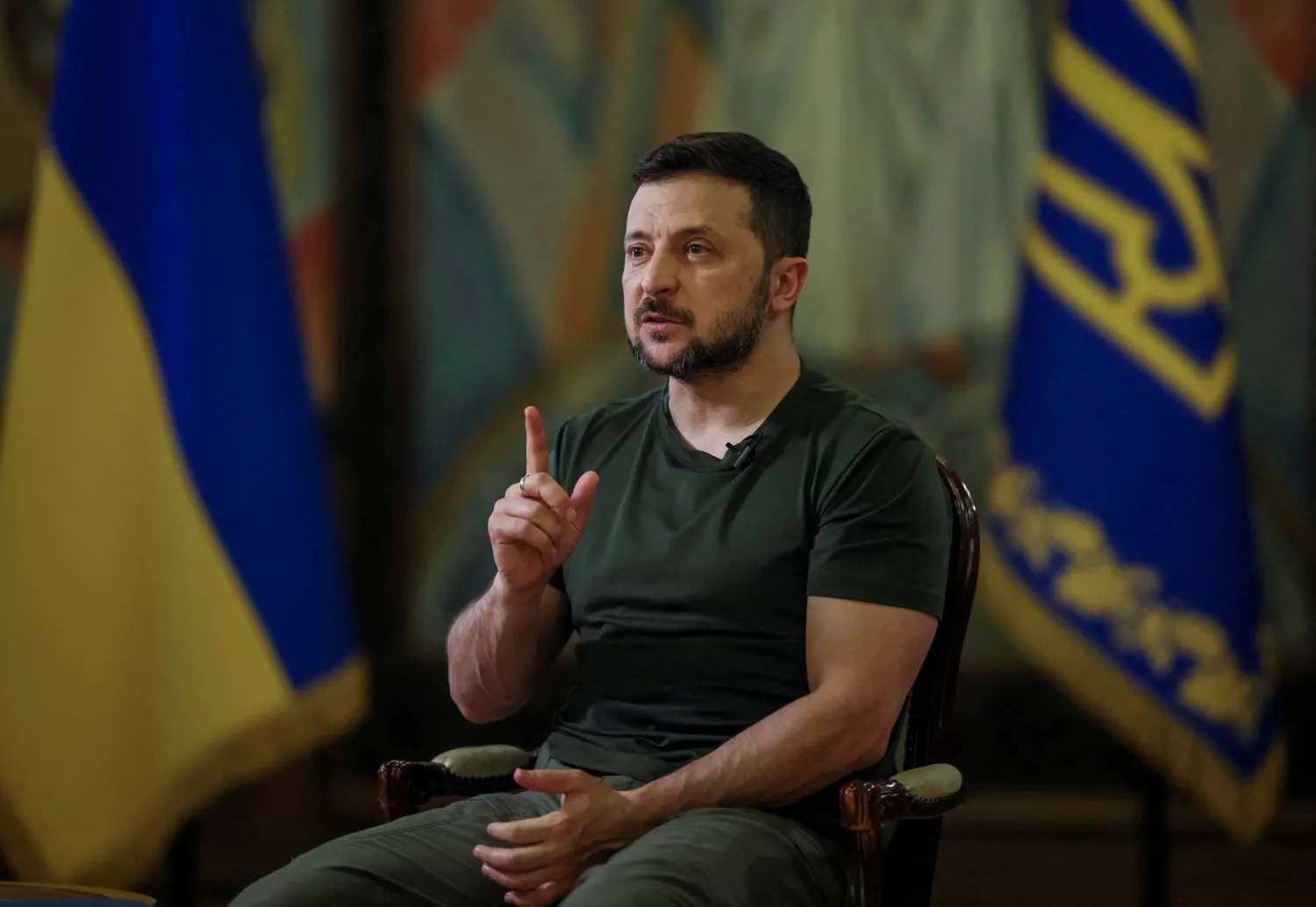President Volodymyr Zelenskiy said on Friday that Ukrainian forces had secured "combat control" of areas where Russian troops staged an incursion this month in northern parts of Kharkiv region.
"Our soldiers have now managed to take combat control of the border area where the Russian occupiers entered," Zelenskiy said in his nightly video address.
Zelenskiy's comments, after holding a meeting of military and regional officials in Kharkiv, Ukraine's second largest city, appeared to be at variance with comments by Russian officials.
Viktor Vodolatskiy, a member of Russia's State Duma lower house of parliament, was quoted by Tass news agency as saying Russian forces controlled more than half the territory of the town of Vovchansk, 5 km (three miles) inside the border.
Vodolatskiy was quoted as saying that once Vovchansk was secured, Russian forces would target three cities in Ukraine's eastern Donetsk region -- Sloviansk, Kramatorsk and Pokrovsk.
Reuters was unable to verify independently battlefield accounts from either side.
Russian forces pushed into border regions of Ukraine's Kharkiv region this month and Russia's Defense Ministry said they had secured control of about 12 settlements.
Zelenskiy and other Ukrainian officials had been reporting success in "stabilizing" the area.
The Ukrainian military's General Staff, in its evening report on Friday said the situation in Vovchansk was "tense but controlled by the defense forces".
"The Russian army today launched air terror against this town -- eight guided bombs hit the town," it said. Attacks were launched on at least two other settlements north of Kharkiv.
A late-night report by the General Staff said Ukrainian forces had repelled 10 Russian attacks in the area, including around Vovchansk.
It also noted Russian forces had achieved "partial success" in areas near Kupiansk, further east in Kharkiv region, and the Pokrovsk sector where heavy fighting has been taking place further south in Donetsk region.
Ukrainian military bloggers said Ukrainian troops had been holding their ground around Vovchansk and Russian forces were using less infantry in the area and instead firing from a distance, with limited accuracy.
Zelenskiy: Ukrainian Forces Now Control Area where Russia Pushed into Kharkiv Region

FILE PHOTO: Ukraine's President Volodymyr Zelenskiy speaks during an interview with Reuters, amid Russia's attack on Ukraine, in Kyiv, Ukraine May 20, 2024. REUTERS/Gleb Garanich/File Photo

Zelenskiy: Ukrainian Forces Now Control Area where Russia Pushed into Kharkiv Region

FILE PHOTO: Ukraine's President Volodymyr Zelenskiy speaks during an interview with Reuters, amid Russia's attack on Ukraine, in Kyiv, Ukraine May 20, 2024. REUTERS/Gleb Garanich/File Photo
لم تشترك بعد
انشئ حساباً خاصاً بك لتحصل على أخبار مخصصة لك ولتتمتع بخاصية حفظ المقالات وتتلقى نشراتنا البريدية المتنوعة







